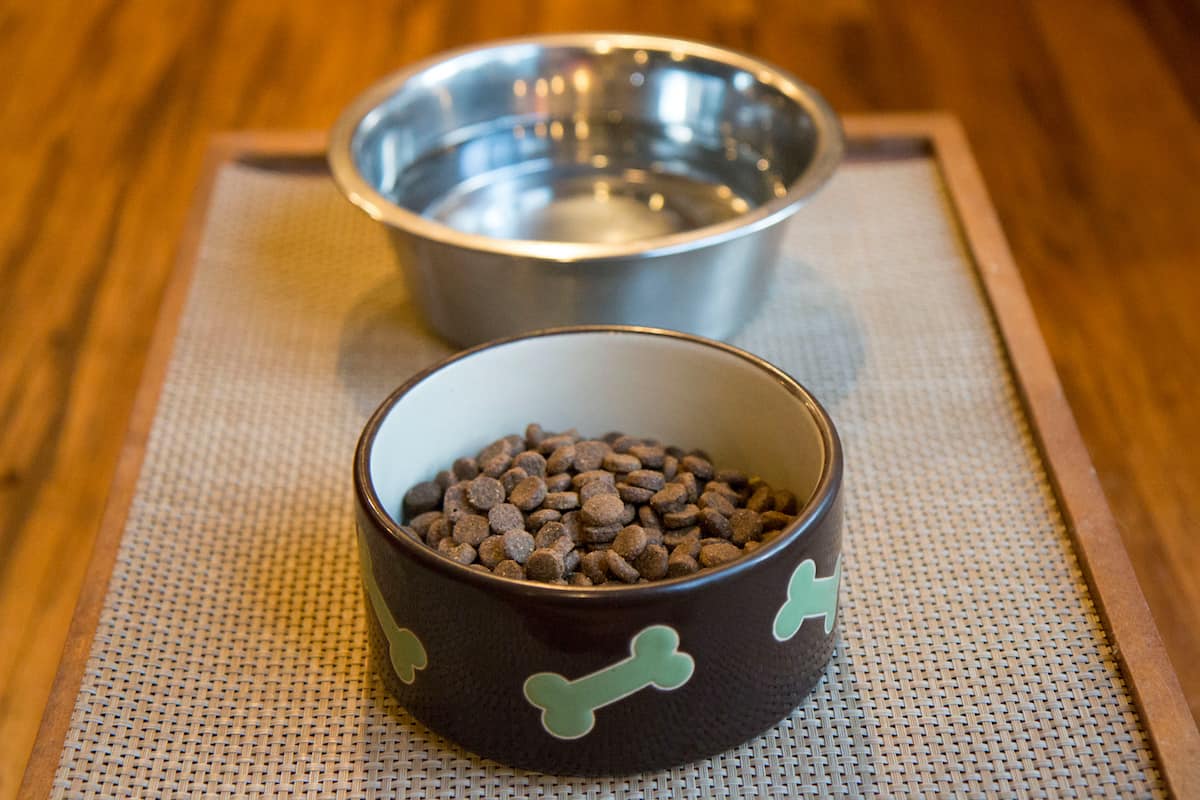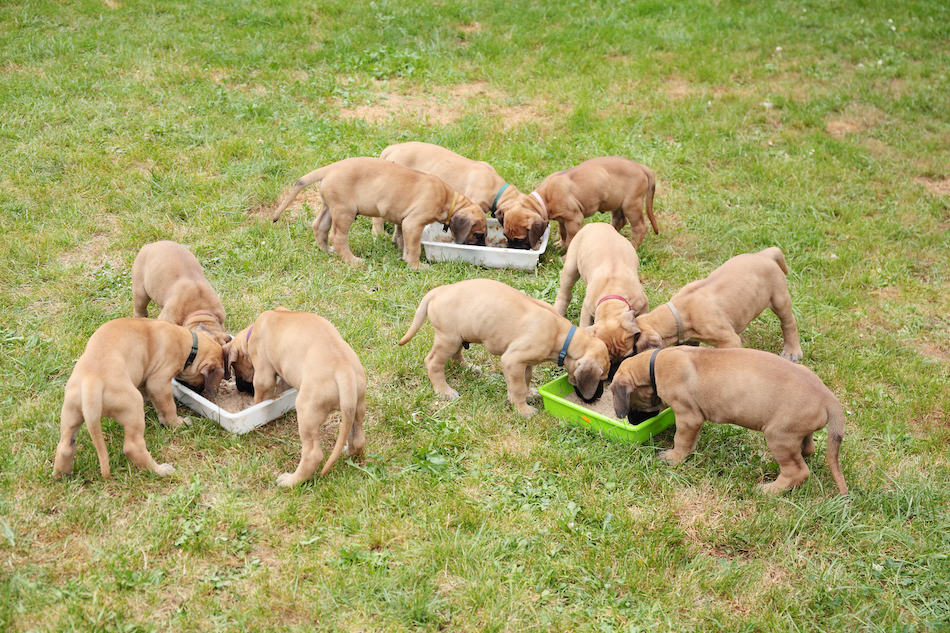Why Are Dogs Fed Puppy Food?

Before jumping straight in, it’s worth getting a better understanding as to why puppy foods were developed in the first place.
Regardless of the breed, all puppies grow at an incredible rate for the first several months of their lives. To support this hyper growth, their bodies require a surplus of calories and nutrients. This is why puppy foods are specifically formulated with more calorie-dense foods to support this high growth phase.
Once their bodies reach at or near full size, they no longer need a caloric surplus to support on-going growth because their growth.
This is the point at which they are typically switched from their puppy-specific food to an adult formula that seeks to provide adequate calories and nutrients at a maintenance rather than growth level.
Continuing to feed them a puppy food as adults could result in undesirable weight gain and other health issues.

With that context in mind, it’s reasonable to think that Great Dane’s also need additional calories to support their puppy growth as well.
However, there are a few differences that make a big GIANT difference.
While small and medium breeds typically reach their full growth potential in a few months, giant breeds like Great Danes often take up to to two years to reach their full size.
Over these two years, their bodies will experience massive growth and transformation that needs to be handled carefully.
Providing too many nutrients can result in unnecessary weight gain, orthopedic issues, and even result in growth-related diseases. The most common of these diseases include Panosteitis and Hypertrophic Osteodystrophy (HOD).
To help prevent these issues from arising, it’s best to control their food to encourage slow and controlled growth over their first two years.
If you’ve even spent much time around a Great Dane, then you probably already have a good idea of what their metabolism is like.
While they certainly have faster metabolism as puppies, giant breed dogs in general will have slower metabolisms than small breeds. This means that their bodies burn off any calories consumed through food at a slower rate.
If you were to feed a comparable food portion to them as a smaller breed, it would result in excess calories. Once again creating the potential for weight gain and other orthopedic issues.
Final Take on Puppy Food for Great Danes
Given that a puppy food formula meets the specific guidelines covered above, then there’s no reason that you can’t feed them to your Great Dane.
Knowing that the needs of giant breeds like Great Danes are different, many companies have developed giant breed specific formulas.
Many of these do a great job of moderating the calories per cup and micro/macro nutrient levels. While you still need to check these specifics, it’s the quality of the ingredients used where things often get dodgy.
To save you the time of searching, I’ve compiled a short list of puppy foods that meet the criteria covered above.
How Much Exercise Does a Great Dane Need Everyday?
An adult Great Dane only needs about 30-60 minutes of exercise a day. Keep in mind that on-leash exercise is much different than off-leash exercise. While a brisk walk may get your dogs heart pumping a little bit, they need a proper run to really get the benefits of being outside.
Plan to give your Great Dane short walks in the morning and evening, and about 45 minutes at a dog park or on a hike at some point in the day. For more insight about how much exercise Great Danes need youll appreciate our article on this topic. Great Dane dog care guide
The breed falls into the short-hair category, but that by no means discounts shedding. The breed is known to shed a lot, and the little hairs can stick in your furniture and cause you to feel itchy. Counteract this by grooming your Dane regularly. A shampoo a few times a year is usually enough for a Great Dane, but regular brushing is imperative to combat the shedding.
If you can brush your dog once a week, youll find the amount of hair in your home is lowered greatly. Their fur responds best to firm bristled brushes, and you should groom your pup early to get them used to the feeling.
Great Danes with their floppy ears will be more prone to ear infections, and you should keep a special eye on their inner ears. Dark or smelly discharge is one of the first signs of an ear infection. Cotton balls and a simple saline solution are often all thats needed to clean your dogs ears.
All dogs should have their teeth cleaned regularly as well. Brush your puppys teeth early, and with a dog-specific toothpaste, and youll be glad when you dont have to fight a fully grown Great Dane to brush their teeth. We cover grooming much more in depth on this page of our site
Should Great Danes Eat Puppy Food?
If youve decided on the regal Great Dane (also lesser known as German mastiffs) as your next dog breed, then youll need to plan for their major growth. From puppyhood to adulthood, your Dane will need specific nutrition, exercise, and supplemental care.